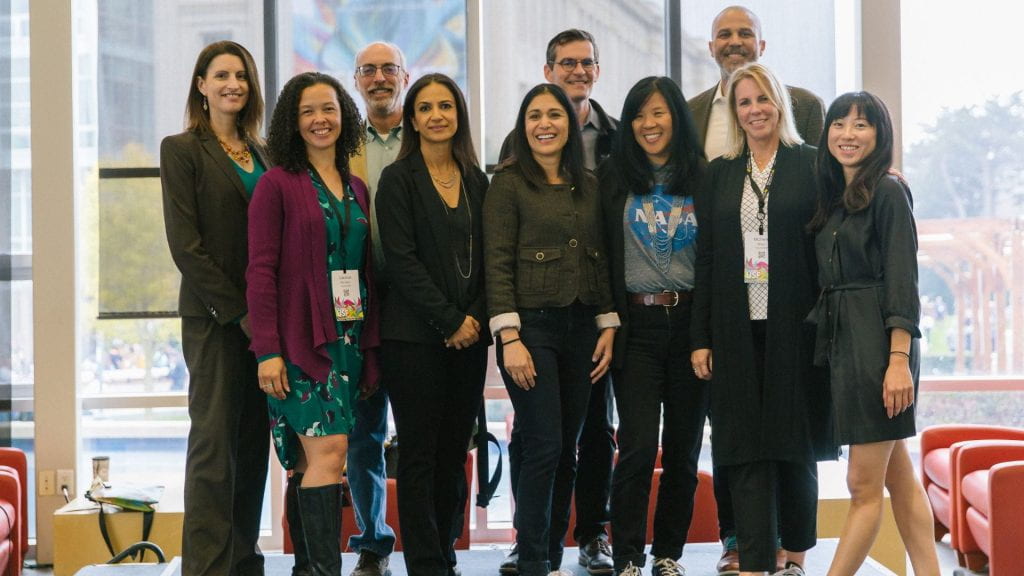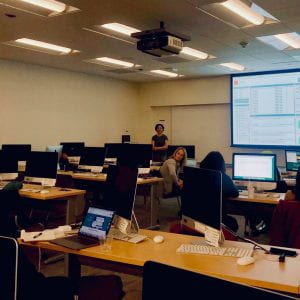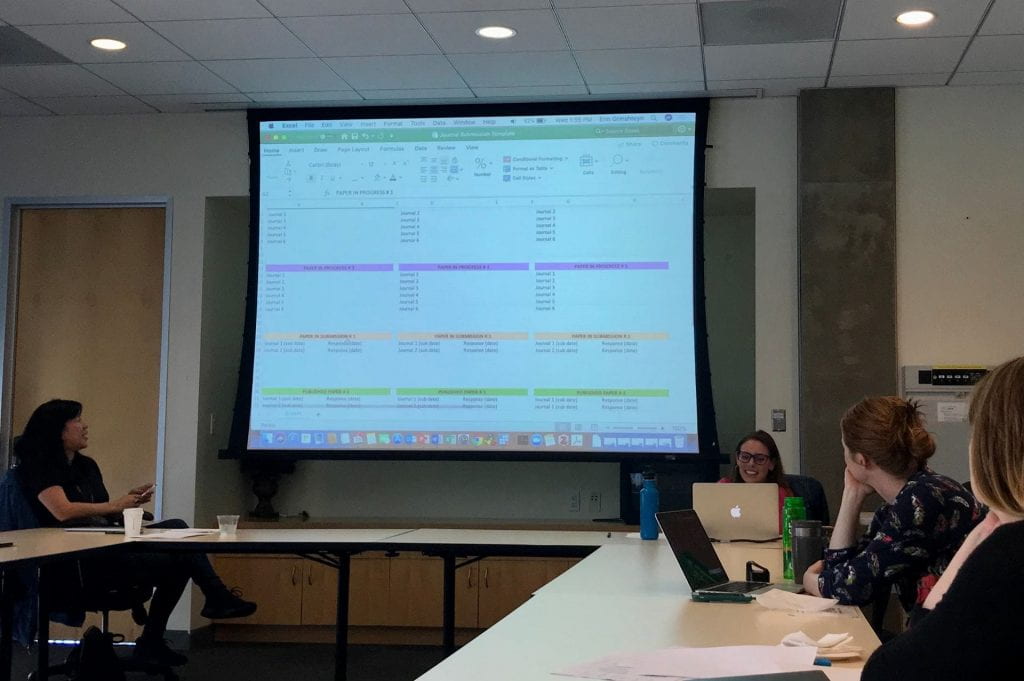Faculty Spotlight: Kevin Lo
Kevin Lo’s cross-cultural research started with the exploration of his own ethno-cultural identity. During our discussion, we talked about interdisciplinary research, social media, and the conversations that inspire him.

Kevin Lo. Photo by Sara Fan
How did you first become interested in research?
My interest in research stems from thinking about my personal, ethno-cultural identity. I’m from Honolulu, Hawaii originally. I was born and raised there, and I’m ethnically Chinese. Obviously Hawaii is part of the US, so I’ve always had experiences in which I felt like I was a local person from Hawaii—not native Hawaiian, but local—American, and Chinese. Depending on the situational context, I would feel a little bit differently—more like I was from Hawaii, more like a Chinese person, more American. I was curious as to what created those differences.
How did you make the leap from your personal experience and this larger identity movement?
Once I became aware of my recurrent thoughts, I wondered, Why do I think like this? Why do I feel like this? Why as I was growing up did my parents say, “We do things this way,”the Chinese way of thinking and doing things? Don’t Chinese people come from China? We didn’t come from China. It was kind of putting these parts of personal identity together that gave me a context for understanding myself and thinking that I can’t be the only person who’s feeling like this.
How have your travels and experiences abroad affected your thought process and research around identity?
Travel gave me a platform for thinking about cross-cultural differences and eventually led me to pursue a degree in international management. As I pursued that degree, it was necessary to collect data and investigate different cultures, but then it also made sense for me to live abroad. I studied abroad in Beijing, China and in Taipei, Taiwan. My first academic job prior to coming here to University of San Francisco was at the University of Auckland in New Zealand. I feel that each of my experiences living overseas have given me insights into that culture as well as points of comparison for thinking about how each of those cultures differed from my perspectives, either growing up in Hawaii or being American.
Two of my early research interests remain current research interests. The first one was people’s use of time, both in organizations and socially. In Hawaii, there’s a slower pace of life. On the East Coast, I experienced the faster pace of life, and it became apparent that maybe Hawaii is not the norm. After living on the East Coast for a while, or even living in China, probably the most salient experience is to go back to Hawaii and feel very impatient when driving at 40 miles per hour down a freeway, which is the norm there. We drive slower, we don’t dart in and out through a crowd of people, you know, just kind of walking at the same pace as everybody else. One of my first research projects was on how people differ in their use of time and what implications that has for international work.
The other project revolves around Chinese American identity and expectations that people put on relationships. In Chinese, we refer to guanxi, which loosely translates to “relationships.” When we talk about business in English, we also talk about importance of networking. Relationships and guanxi are both important, but that doesn’t mean that networking and guanxi are the same thing. While relationships broadly defined are important in both cultural contexts, how you go about them is very different. People could very easily run into problems if they assume that they’re synonymous, not only linguistically, but also if they assume the behaviors associated with each are one and the same. My doctoral research started to tease apart those differences empirically. It’s complex because you’re talking about two very large cultural constructs. In addition, both economies are growing so quickly that what might have been characteristic of guanxi 10 or 20 years ago might not be the same anymore.
I’ve become interested in relationships on social media. Since coming to the University of San Francisco, one of my newer projects is on how business organizations use social media and how individuals use social media as well.
How did you become interested in the social media component of these interactions?
When Facebook was first available, I had an account. I was quite active on Twitter for a while. I don’t think that Instagram is most popular with my age demographic, but I’m still an avid Instagrammer. My interest is in how other people use social media—both in organizations but particularly cross-culturally as well. I think what I know anecdotally is that different platforms are more popular in certain cultures than in others.
I’m also very interested in the use of social media in the classroom and whether current students, because they’re digital natives, are genuinely interested in having their social media lives converge with their academic lives. There have been a lot of suggestions, pedagogically, for faculty to incorporate social media into their teaching. In the past, I’ve actually experienced quite a bit of resistance from students who say, “Yes, we are on Twitter and on Facebook, but we don’t want to be on Twitter or Facebook for class.” Some relationships are very specific and people keep those relationships compartmentalized. Students might maintain a Twitter account for engaging with their friends and maybe a few athletes, celebrities, or politicians, but that is going to be a socially specific or personally specific domain. They don’t want class-related communication rolled into that same Twitter account, and that’s a new phenomenon that has implications for teaching.
How do your students inspire your research?
The best experience that I could imagine would be having a class of students who represent many different cultures and we could talk about interpersonal relationships, use of time, and use of social media to gather stories. I can introduce both a theoretical concept that’s relevant to the class as well as some of the findings that my research has suggested and ask them what they think about it. Or perhaps my findings are already outdated because things change so quickly and that would give them a chance to respond and feel engaged with some of the most cutting edge findings.
How does your interdisciplinary background in business and psychology work together?
It’s part of who I am to choose an interdisciplinary field. I received a degree in international management, but it draws heavily from social psychology, cultural anthropology, and industrial-organizational psychology as well. I think that ultimately helps me be more rounded as a researcher—I can draw from other fields, have conversations with people in those fields, have dialogues that help inform my perspectives, and maybe link up with them for research collaborations.
Sometimes it makes it a little harder because it’s a small discipline unto itself but one that tries to enter other disciplines that are much larger. This is really where I want to sit as a researcher, so I accept that these are some of the challenges as an interdisciplinary researcher. I think it’s really important as a researcher to find topics that are stimulating. I would rather take something that really piques my interest and round it out by drawing from several different fields.
For example, not all disciplines conceive of culture in the same way, and I recently experienced these differences in trying to get some research that a colleague and I had done on organizations’ use of social media. That was targeted for intercultural communications journals, which is not my direct discipline. I think there’s a part of communication literature that I certainly understand, but the way that management academics talk about culture and the way that communication scholars talk about culture are quite different.
Here at our school of management, there are quite a few interdisciplinary researchers. We might have a degree or an area, but we’ll branch out and try to publish work in other related areas. Being here, I don’t feel like it’s a journey I’m trying to forge by myself.
How is your research playing out at USF?
One of the perks of being an interdisciplinary researcher is that it’s easy for me to join in conversations at various parts of the university. Here in the School of Management, my department is called Organization, Leadership, and Communication. In some universities, it’s called the Organizational Behavior Department, maybe the Management Department. I can have conversations with International Business. I can have conversations with our Communications Department within Arts and Sciences. If faculty at the School of Education are interested in culture as a variable, then I probably have complementary interest to some of the work that they’re doing. There are a lot of people across university, not strictly in the School of Management, who are interested in similar topics.
How does being in San Francisco impact how you do research?
This is one of the major cities in the US that lends itself to simulating cross-cultural perspectives. When thinking about my research, I don’t feel like I have to go too far to have those same personal experiences that I might have to go to another country to acquire. By the same token, I make a case to my students if I’m talking about cross-cultural differences that you don’t need to go overseas or abroad. Look at how diverse our city is. You can go down the street and have a cross-cultural interaction that you don’t quite get and want to examine more closely. San Francisco informs my research because of its diversity.
Do you continue to do a lot of traveling for your research?
When I go abroad, I try to think about what am I feeling and what am I experiencing that might be rooted in cultural differences. I’ve come across the broad dimension of culture that stimulates my interest most intensely. If I could sit down with a local in another country, I would talk about their concept of time and relationships. It’s the personal experience of conversations that prompt me to think about research.
![INSIDE CRASE [Backup Jan 2021]](http://usfblogs.usfca.edu/crase/files/2018/02/crase_logo-1nupzm8.png)



Leave a Reply